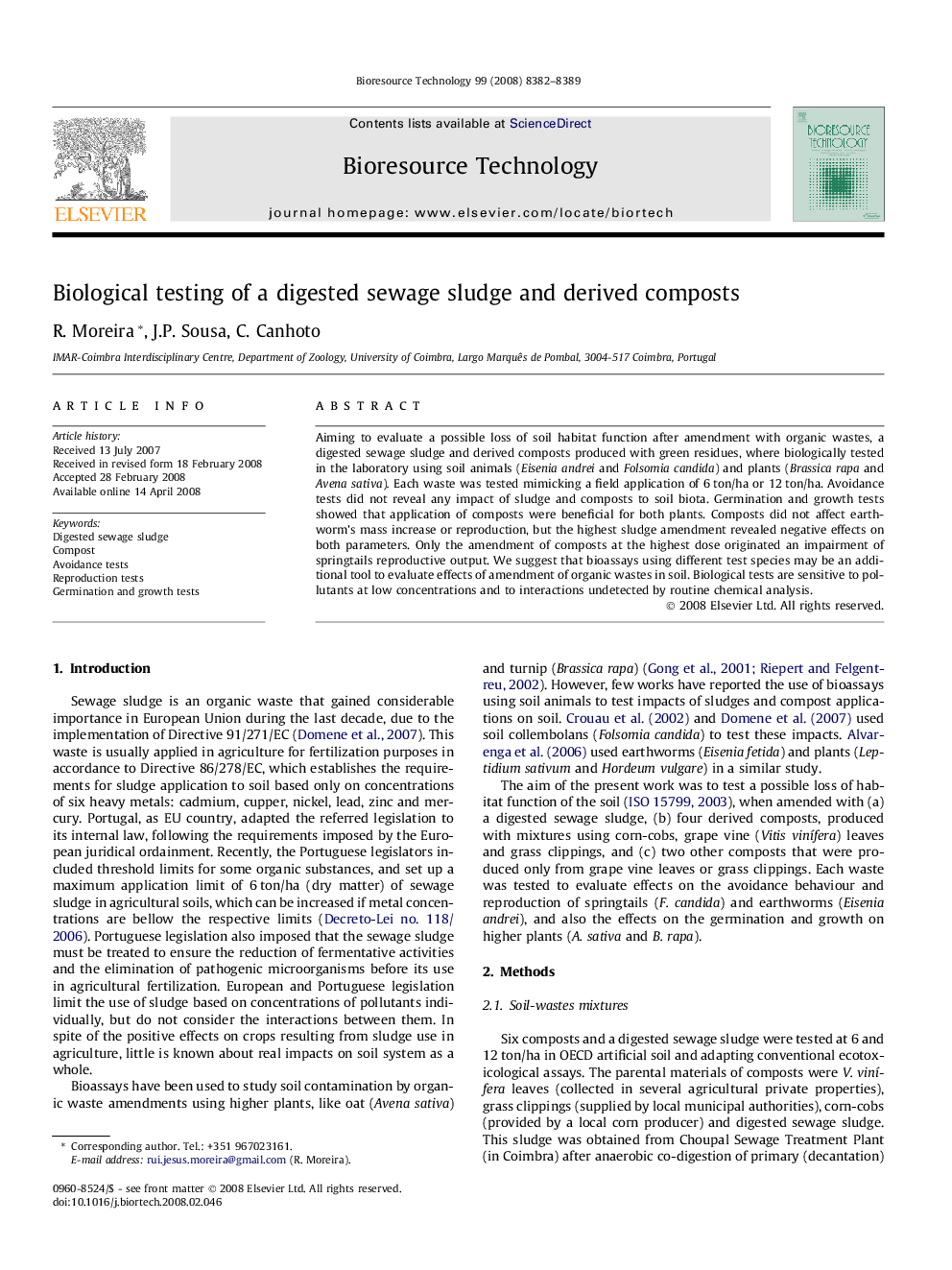| Article ID | Journal | Published Year | Pages | File Type |
|---|---|---|---|---|
| 684581 | Bioresource Technology | 2008 | 8 Pages |
Aiming to evaluate a possible loss of soil habitat function after amendment with organic wastes, a digested sewage sludge and derived composts produced with green residues, where biologically tested in the laboratory using soil animals (Eisenia andrei and Folsomia candida) and plants (Brassica rapa and Avena sativa). Each waste was tested mimicking a field application of 6 ton/ha or 12 ton/ha. Avoidance tests did not reveal any impact of sludge and composts to soil biota. Germination and growth tests showed that application of composts were beneficial for both plants. Composts did not affect earthworm’s mass increase or reproduction, but the highest sludge amendment revealed negative effects on both parameters. Only the amendment of composts at the highest dose originated an impairment of springtails reproductive output. We suggest that bioassays using different test species may be an additional tool to evaluate effects of amendment of organic wastes in soil. Biological tests are sensitive to pollutants at low concentrations and to interactions undetected by routine chemical analysis.
